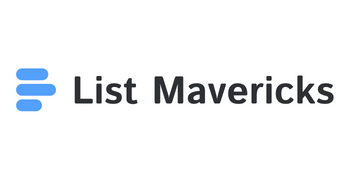A LinkedIn expert consultant helps businesses and professionals get the most out of their presence on LinkedIn. A consultant can create effective strategies, optimize LinkedIn profiles, and manage campaigns to boost visibility, reach, and networking success. With LinkedIn now a leading platform for career growth and business development, knowing how to use it well is more important than ever.
These specialists guide clients on best practices for building strong connections and generating leads. Their services can include audits, training, and analytics, so organizations see real improvements and clear results. Working with a consultant can give any team the skills and tools needed for greater impact on LinkedIn.
Key Takeaways
- A LinkedIn expert consultant provides custom strategies and solutions.
- They help improve LinkedIn profiles, campaigns, and team skills.
- Their support leads to measurable results and stronger networking.
Understanding the Role of a LinkedIn Expert Consultant

A LinkedIn expert consultant helps professionals and businesses by improving their profiles, creating clear growth strategies, and building strong networks. Many companies turn to these specialists to stand out in a busy job market and gain a competitive advantage.
Key Responsibilities of LinkedIn Consultants
LinkedIn consultants focus on areas like profile optimization, content planning, and networking. They adjust LinkedIn profiles so they clearly show skills, achievements, and career goals. This makes profiles more appealing to recruiters and potential business partners.
They also build content strategies that help users stay active and visible on the platform. Regular posting, sharing insights, and engaging with others increases a user’s professional reach.
Consultants teach clients how to connect with people who matter in their field. They might set up lead generation systems, provide ongoing training, or design campaigns that help users grow their influence. By analyzing progress and adjusting tactics, these consultants make sure strategies match long-term professional networking goals. For more information, see this LinkedIn consultants guide.
Qualifications and Skills Required
Successful LinkedIn experts need both experience and specialized skills. Many have a background in marketing, sales, HR, or business consulting. Strong written communication and the ability to present achievements clearly are essential.
They need to understand LinkedIn’s features to help clients use the platform effectively. This includes knowledge of algorithms, analytics, and profile tools.
Consultants must also be good listeners and problem solvers. They should create practical solutions that fit different clients and organizations. Besides technical knowledge, honesty and a clear, confident attitude are important signs of a professional LinkedIn consultant. Skills in leadership, project management, and collaboration also help them deliver results.
Developing an Effective LinkedIn Strategy

A successful LinkedIn strategy connects business goals with practical steps. It draws on proven methods for making new connections, attracting prospects, and increasing brand awareness to support long-term business growth.
Aligning Business Objectives with LinkedIn Initiatives
Every LinkedIn effort should support clear business objectives, such as building market presence, finding new clients, or hiring talent. Consultants help organizations link platform activities—like sharing posts, joining groups, or messaging leads—to larger business needs.
First, businesses identify goals such as boosting website traffic, gaining industry authority, or generating qualified leads. Profiles are updated and keywords are added to target ideal clients and markets.
Content planning focuses on addressing real client problems and sharing specific solutions. This ensures content directly supports sales and growth targets.
Regular tracking of LinkedIn analytics helps measure if actions drive desired outcomes. Adjustments are made as business priorities shift.
Strategies for Lead Generation
LinkedIn is a strong channel for lead generation. Key methods include targeted search, smart use of filters, and personalized messaging to reach decision-makers.
A LinkedIn expert consultant will set up clear inbound and outbound processes for finding potential clients. They use advanced search to build prospect lists, craft personal connection requests, and follow up with value-driven messages.
Content plays a key role in lead generation by offering actionable insights and clear calls to action. Hosting webinars or sharing case studies can convert connections into leads. Lead generation systems can also help automate and track progress.
Efforts are refined over time by measuring response rates and engagement, adjusting outreach tactics for better results.
Maximizing Brand Visibility and Personal Brand
Brand visibility starts with a strong profile, using a professional photo, clear summary, and specific skills. Posting consistently about industry trends helps establish authority and trust.
Using relevant hashtags and participating in group discussions increases the reach of posts. Collaboration with other thought leaders opens up new audiences.
Personal branding is strengthened through recommendations, endorsements, and showcasing measurable achievements. Video content and article publishing can boost engagement and help professionals stand out.
Connecting with industry leaders and joining active groups gives more chances to be seen by target clients, growing brand awareness and influence. For more, see tips for building a positive reputation as a consultant.
Integration with Overall Marketing Strategy
LinkedIn strategy should support and connect with the full marketing strategy, not exist alone. All messages, branding, and campaigns must be consistent across channels.
Sharing blog posts, company news, and event updates drives traffic back to the website and other platforms. LinkedIn ads and sponsored content can target specific audiences, complementing email marketing or paid search campaigns.
Data from LinkedIn analytics helps marketers adjust other campaigns and understand what resonates with potential clients. Coordinating lead nurturing and follow-up systems makes conversion smoother and supports business growth.
By aligning LinkedIn activities with wider marketing, organizations gain a competitive advantage and more return from both efforts.
Profile Optimization and Auditing

An expert LinkedIn consultant uses specialized methods to evaluate, improve, and highlight a professional’s online presence. Paying attention to both profile content and discoverability can help attract recruiters, clients, and business partners.
Comprehensive Profile Audit Process
A profile audit begins with a thorough review of every section on LinkedIn, from the profile photo to work experience and skills. Consultants look for missing information, outdated details, weak headlines, and generic summaries. They use checklists and customized templates to measure key areas and spot gaps.
The audit often includes giving written or verbal feedback to show what needs improvement. Feedback can cover profile keywords, engagement with posts, and overall professionalism. A high-quality audit points out how to fix weaknesses and build a stronger personal brand. Some providers offer deep evaluations that include a detailed analysis and step-by-step instructions for changes, similar to the profile evaluation services provided by LinkedIn specialists.
Essential Elements of Profile Optimization
Profile optimization focuses on reshaping main elements of a LinkedIn page to drive engagement and build credibility. The process starts with enhancing the headline and summary by including industry-specific keywords that match the user’s career goals. A professional profile photo and custom background image make the profile more appealing.
Work experience and education sections are updated to use clear language and concrete achievements. Consultants also review skills and recommendations to ensure they match the person’s expertise. They may suggest using LinkedIn features like the featured section to highlight work samples, presentations, or awards. Structured optimization improves the profile’s clarity and value for connections or potential employers. Quick updates can often be completed in a few business days with the right guidance, as explained in best practice guides such as Optimal Coaching & Consulting Solutions.
Enhancing Visibility through Digital Business Card
A digital business card on LinkedIn helps professionals stand out and makes it easier for others to connect and remember them. This feature allows users to share direct contact details, websites, and portfolio links in one place. Consultants recommend filling out every section and designing the card to match personal branding.
Key parts of the digital card include a unique profile URL, consistent branding, and contact information that matches the user’s résumé or external portfolios. Using call-to-action lines, such as “Connect with me to discuss new opportunities,” encourages engagement. Including a digital card as part of optimization efforts boosts visibility and can improve networking results, as seen in LinkedIn’s own profile optimization guides.
LinkedIn Campaign Management and Analytics

LinkedIn expert consultants help businesses run successful ad campaigns by planning, executing, and tracking results. Their work involves detailed strategy, close monitoring, and analysis to increase return on investment (ROI).
Planning and Executing LinkedIn Ad Campaigns
A LinkedIn expert consultant develops targeted ad campaigns based on clear business goals. They start by identifying the right audience using filters like job title, company size, and industry. Proper audience selection is crucial to ensure ads reach decision-makers and generate qualified leads.
They work with different ad formats, such as Sponsored Content, Message Ads, and Dynamic Ads. Each format has unique strengths for building brand awareness or driving conversions. Consultants also decide on budgets, set timelines, and select bidding strategies to manage costs.
Daily monitoring allows quick adjustments. Consultants review performance during campaigns, making changes like updating ad creatives or adjusting audience targeting to improve results. This ensures the campaign is always working towards the business’s defined objectives.
Utilizing Performance Analytics to Measure ROI
Performance analytics are essential for measuring the success of LinkedIn ad campaigns. Consultants track key metrics like click-through rates (CTR), cost per lead (CPL), and conversion rates, which show how well ads are performing.
They use LinkedIn’s built-in analytics tools and often create custom dashboards so clients can monitor progress in real time. This data-driven approach helps identify trends, strengths, and weaknesses within each campaign.
Analyzing these metrics enables consultants to calculate ROI by comparing the campaign costs to the value of generated leads or direct sales. Accurate measurement informs future campaign planning and justifies advertising spend.
Ensuring Measurable Results
LinkedIn expert consultants set clear success metrics at the start, such as target lead volume, engagement rates, or sales conversions. This ensures results are easy to measure and compare.
They provide clients with regular reports showing progress against these goals. The reports may include tables and charts for easy review, such as:
| Metric | Target Value | Actual Value |
|---|---|---|
| Leads Generated | 50 | 62 |
| CPL ($) | 30 | 25 |
| CTR (%) | 1.5 | 1.8 |
This clear, fact-based reporting process makes it easier to judge campaign effectiveness and make informed adjustments. Clients gain confidence knowing their LinkedIn ad campaigns are managed using industry best practices for tracking and improvement. To learn more about expert strategies, see this detailed guide on hiring LinkedIn specialists.
Team Training and Networking Enhancement

Teams can benefit from both skill-focused LinkedIn training and methods to boost their professional connections. Well-designed programs help staff improve their profiles, engage with others, and make the most of LinkedIn’s tools.
Custom Team Training Programs
LinkedIn expert consultants create training sessions that are tailored to a team’s needs. These programs often cover topics like setting up strong profiles, making thoughtful posts, and managing privacy settings. Workshops may use real examples and live walkthroughs so staff can apply what they learn right away.
Common training options include virtual seminars or in-person workshops. Some trainers, like those offered by Think Bespoke, run sessions on maximizing engagement and networking for groups. Key features often include small group practice, step-by-step guides, and feedback on each team member’s profile.
Custom programs allow teams to ask questions that relate to their daily work. This approach also lets staff focus on goals such as personal branding, connecting with clients, and building a stronger company presence on LinkedIn. Progress can be tracked with checklists and follow-up coaching.
Strategies for Strengthening Professional Networking
Improving professional networking often means more than just connecting with others. Teams learn to join relevant industry groups, share thoughtful content, and interact with peers. LinkedIn expert consultants help staff find and join the right communities to expand their reach.
Effective networking strategies include:
- Defining team goals: Are they looking for sales leads, partnerships, or talent?
- Building a routine: Teams set aside time to update profiles, share insights, and comment on posts.
- Personalizing outreach: Instead of sending generic requests, staff learn to craft meaningful messages.
Trainers also encourage teams to support each other’s posts and success. This teamwork can increase engagement and attract more attention to both the individual and the business. Staff get clear steps for making new connections, following up with key contacts, and growing their professional networks with purpose.
Measuring Success and Demonstrating Value

A LinkedIn expert consultant uses clear methods to show their impact. Specific examples, client feedback, and digital project support help show value in ways that matter to clients.
Utilizing Case Studies to Showcase Results
Case studies provide real-world examples of a consultant’s work and the outcomes they achieve. By breaking down the process, challenges, solution, and end results, a consultant can show how their strategy improved a client’s LinkedIn presence or helped meet business goals.
Clients often look for measurable change, such as increased leads, higher engagement, or improved profile visibility. Including before-and-after metrics or visual data makes a case study more convincing. Tables or charts can show key numbers, like profile views or connection requests.
Example Table: LinkedIn Profile Metrics
| Metric | Before Consulting | After Consulting |
|---|---|---|
| Weekly Profile Views | 120 | 350 |
| Leads Generated | 5 | 22 |
| Engagement Rate (%) | 1.5 | 4.2 |
These specific results help build confidence and trust in the consultant’s methods. To learn more, see how case studies are used to measure consultant success.
Leveraging Client Testimonials
Client testimonials support a consultant’s claims with real feedback. A good testimonial uses direct quotes that describe the client’s problem, the consultant’s work, and the results.
Including full names and job titles, when possible, adds credibility. Consultants often showcase these on their LinkedIn profiles or websites, helping future clients see social proof of results. Readers see not just metrics, but stories about what changed after working with the consultant.
Testimonials highlight strengths like clear communication, fast response times, or understanding a client’s goals. Client satisfaction is a key metric for measuring consulting value.
Supporting Digital Transformation Initiatives
Many organizations seek help with digital transformation, updating their processes and tools to stay competitive. LinkedIn consultants can play a part by helping clients shift their branding and outreach strategies onto digital platforms.
A consultant can measure success by tracking growth in online visibility or the adoption of new digital practices. Progress might be shown through improved online engagement, better job matching, or more digital networking leads.
By aligning outcomes with the client’s main digital goals, the consultant shows practical results. Setting clear KPIs for change, such as process improvement or revenue growth, helps measure the consultant’s contribution to a client’s digital initiatives.
Frequently Asked Questions

Choosing the right LinkedIn expert consultant can raise questions about credentials, roles, and available services. People often want details about certifications, job opportunities, and the difference between consultants and profile writers.
How can I find a reputable LinkedIn expert consultant in my area?
Searching for a LinkedIn consultant can start online by checking their visibility and credentials. Look for consultants who appear in Google searches for LinkedIn experts and review their own LinkedIn profiles for professionalism.
Talking with clients they have worked with can help verify their reputation. Consultants who specialize in LinkedIn rather than general social media often have more specific expertise.
What qualifications should I look for when hiring a LinkedIn expert consultant?
Qualifications for a LinkedIn expert may include verified client results, a strong personal LinkedIn profile, and experience in profile optimization and content strategy.
Asking questions about their successes, client testimonials, and specialization in LinkedIn rather than general marketing can help identify if they are the right fit.
Where can I find job opportunities for LinkedIn expert consulting?
Job opportunities are often posted on LinkedIn, job boards, and digital marketing forums. Networking with established LinkedIn consultants can also lead to freelance or full-time roles.
Some companies may look for consultants to engage target audiences or train employees in LinkedIn best practices.
What are the benefits of obtaining a LinkedIn expert consultant certification?
A certification can show potential clients and employers that a consultant has taken the time to learn the platform’s best practices. This may give them a competitive edge in getting clients or job offers.
It also often builds greater trust with clients looking to invest in LinkedIn services.
Should I consider using a LinkedIn optimization service to improve my profile?
LinkedIn optimization services help improve profile visibility, search ranking, and engagement. These services may include SEO for LinkedIn profiles, writing summaries, or guiding on networking strategies.
People seeking more job offers or leads may find these services valuable, especially if they are not sure how to improve their profiles themselves.
How does a LinkedIn expert consultant differ from a LinkedIn profile writer?
A LinkedIn profile writer usually focuses on writing and editing the text on your profile. In contrast, an expert consultant offers strategy, profile optimization, lead generation tactics, and guidance on content and networking.
Consultants provide a broader range of services than profile writers and often develop ongoing strategies for growth on the platform.

